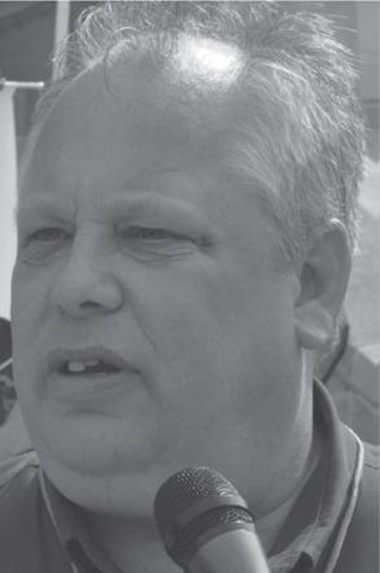Kansas voting fight: Democrat, Republican, unaffiliated or Martian

by John Hanna, AP Political Writer
Topeka, Kan. (AP) — A majority of the prospective Kansas voters whose registrations were put on hold after the state began enforcing a proof-of-citizenship law — preventing them from legally casting ballots — claim no political affiliation, an Associated Press computer analysis shows.
The computer analysis shows that 57 percent of the registrations put on hold since the law took effect in January were from people listing themselves as unaffiliated, even though such residents make up only 30 percent of the state's 1.7 million registered voters.
Thousands of Kansas residents have registrations on hold because they have yet to provide a birth certificate, passport or other document proving U.S. citizenship. Election officials accept people's forms without those papers, but until people produce them, any ballots they cast at the polls would be set aside and not counted.
The analysis of data from the Kansas secretary of state's office also discloses that since the rule took effect, flawed or incomplete registrations have remained on hold on average for close to four months.
Through an open records request, AP obtained an electronic copy of the statewide list of voter registrations on hold as of Aug. 28, containing about 16,300 entries. While the secretary of state's office declined to disclose the reasons for each individual's inclusion on the list, it confirmed that the vast majority were there because they'd not yet complied with the proof-of-citizenship rule.
Nearly 45 percent of all registered voters are Republicans, but GOP-affiliated residents accounted for only 23 percent of the registrations on hold. Democrats accounted for 18 percent of the registrations in limbo, but they're almost 25 percent of registered voters.
Election officials in multiple counties have reported relatively little success in getting people whose registrations are on hold to provide citizenship documents after the fact. Some worry that election offices will face a rush of people with citizenship papers close to the state's August 2014 primary and its November 2014 general election.
"Sometimes, people don't do things until they're up on the deadline," Geary County Clerk Rebecca Bossemeyer, a Republican, said Friday. "I think that we will be seeing more administrative issues."
Republican Secretary of State Kris Kobach championed the proof-of-citizenship law as a way to prevent non-citizens — particularly those in the U.S. illegally — from voting, and he has said the state had at least 15 non-citizens registered at the end of 2012.
The secretary of state's office says more than 80 percent of the people whose registrations are on hold for failing to meeting the proof-of-citizenship requirement filled out registration forms at a driver's license office. Federal law requires states to allow voter registration at such offices, and Kobach contends the result is potentially thousands of "casual" registrants who don't really intend to vote.
"A person who does not intend to vote at all tends not to have a party affiliation," he said. "The argument that this is voter suppression is idiotic."
Nearly 9,300 of the registrations on hold at the end of August were for unaffiliated Kansas residents, compared to about 3,700 for Republicans and fewer than 3,000 for Democrats.
"Unaffiliated voters will generally be the last to vote or to think about voting," said Senate Minority Leader Anthony Hensley, a Topeka Democrat. "I think they are people who are going to vote, but it just took them a little longer to decide whether they wanted to vote."
Tom Witt, executive director of Equality Kansas, said unaffiliated voters usually don't register at partisan events, such as political rallies, where interest in registering is spurred by support for a candidate or cause. While there's been a surge in registrations in the past 20 years, it hasn't translated into a similar surge in voting, he said.
But he added: "I think it's troubling that anybody is getting their registrations suspended, whether it's Democrat, Republican, unaffiliated or Martian."
The list of registrations has grown steadily and as of mid-September stood at more than 17,000.
The AP analysis showed that as of the end of August, the average length of time that a registration had been on hold was 117 days, or since early May. It varied little from that mark for Republicans, Democrats or unaffiliated residents.
Also, a third of the registrations on hold dated to the first quarter of the year.
Saline County Clerk Don Merriman, a Democrat, said he plans in a few weeks to start going door to door with a half-dozen volunteers to contact some of the 300 people with registrations on hold. So far, he's getting one response for every ten mailings to them, but he's promising not to "become a pest."
"If they tell me to get off their porch and leave them alone, I'll do that," he said.
Copyright 2013 The Associated Press.
October 11, 2013





